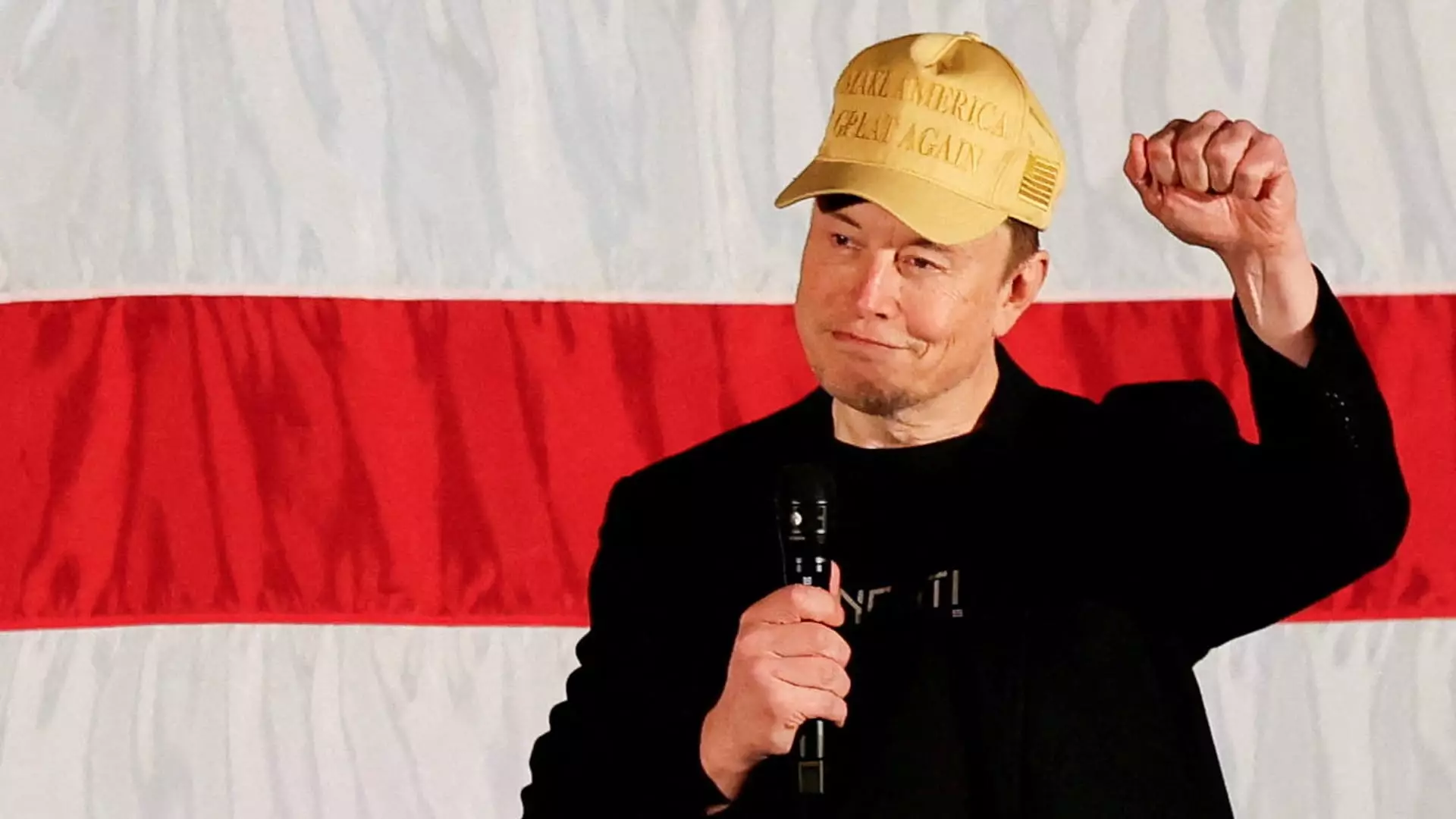In a recent gathering in Harrisburg, Pennsylvania, Elon Musk, the emblematic tech entrepreneur and CEO of SpaceX and Tesla, made waves with an announcement that would send ripples through the political landscape. He declared a daily giveaway of $1 million to randomly selected registered voters who signed a petition supporting his pro-Trump political action committee (PAC). This initiative, touted by Musk as a means to galvanize voter turnout in key swing states, intertwined philanthropy, political ambition, and the contentious boundaries of electoral legislation.
Musk’s ambitious plan involves giving away $1 million each day until Election Day, accessible to those who register on his pro-Trump petition. He actively encouraged attendees to participate, presenting a sizable check to a petition signer during his address. While Musk described the giveaway as a “good use of money,” it raises serious questions about the ethics and legality of paying citizens to participate in the electoral process. The timing of this initiative coincides with critical deadlines for voter registration in Pennsylvania, which Musk described as the “linchpin” of the upcoming election.
However, the particulars of this giveaway point to significant legal ambiguities. Registered voters from swing states like Arizona, Georgia, and Wisconsin are eligible, theoretically broadening his appeal in regions pivotal to electoral outcomes. Yet, as the event concluded, critics began to dissect the legality surrounding such a program.
The initiative has not escaped scrutiny. Noted law professor Rick Hasen has highlighted that Musk’s “pay for participation” approach could breach federal election laws. As Hasen emphasizes, the law strictly forbids any financial incentive tied to voter registration or casting a ballot. The potential violations could see Musk facing civil penalties, including hefty fines or incarceration, illustrating the tension between entrepreneurial spirit and legal compliance.
Governor Josh Shapiro of Pennsylvania remarked on the plan’s troubling implications, hinting at possible law enforcement investigations. Musk’s strategy, while innovative, bumps against the fundamental principles of democracy, raising alarms about wealthy individuals manipulating the voting process.
While Musk’s altruistic intentions may resonate with some, his political alignment has drawn scrutiny. His recent proclamations against various government entities imply an adversarial relationship with regulatory agencies. He has consistently voiced disdain for the Biden administration and labor unions, emphasizing a desire for deregulation and minimal government intervention.
Musk’s rhetoric often suggests an inherent contradiction: despite benefiting significantly from government contracts and support, he vehemently critiques the very structures that facilitated his success. His comments on government inefficiency resonate with a segment of the population disillusioned with bureaucratic processes, but they also paint a picture of an individual whose entrepreneurial spirit sometimes clashes with civic responsibility.
At various pro-Trump events, Musk has propagated debunked theories related to voter fraud and election integrity, a trend that only fuels partisan divides. His remarks may further alienate potential voters who value a factual discourse on democratic processes. By dismissing concerns regarding the security of elections, Musk risks standing on shaky ground, especially when trying to garner support from undecided voters.
This narrative complicates his electoral efforts, as it subtly positions him alongside conspiracy theories that undermine public trust in the electoral system. The irony is palpable—while rallying for increased voter participation, Musk seemingly endorses ideas that could lead to disenfranchisement through unfounded distrust.
Elon Musk’s $1 million giveaway to registered voters encapsulates the increasingly blurred lines between wealth, politics, and democratic integrity. While the initiative might seem like an appealing effort to stimulate voter participation, it is fraught with legal hurdles and ethical quandaries. The risks are multi-faceted: not only could Musk face significant legal challenges, but his actions may further erode the public’s faith in the electoral process.
If anything, Musk’s political venture raises a compelling question for society: can democracy truly flourish when influenced by individuals wielding staggering financial power? As the election approaches, this bold experiment will undoubtedly remain in the spotlight, forcing voters and lawmakers alike to grapple with the evolving dynamics of modern electoral politics.


Leave a Reply